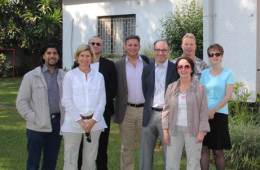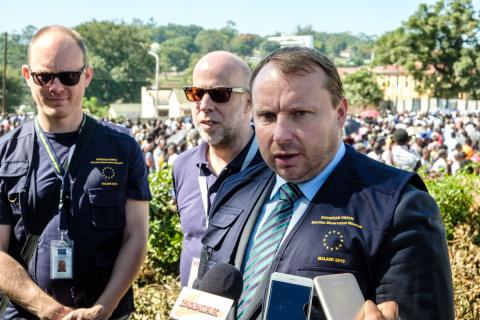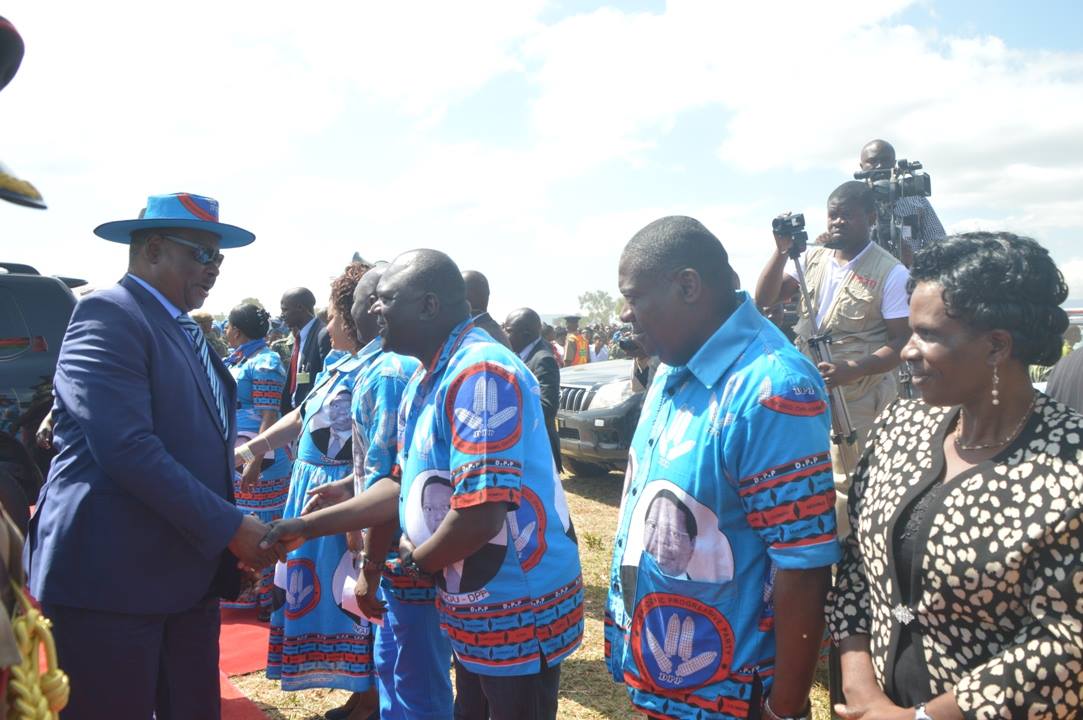
Sidra Medical and Research Center employees Elaine Sigalet, Sidra’s simulation consultant, and Renee Pyburn, Senior Project Manager, travelled to Malawi last week as part of a group of eight simulation educators from the International Pediatric Simulation Society (IPSS).
The group included pediatric physicians, nurses, a pharmacist/emergency medical technician and research professionals.
Malawi has one of the highest rates of death in children under the age of 5 in the world.
In a commitment to improve these statistics a partnership was formed between IPSS, Malawi’s Ministry of Health, the World Federation of Pediatric Intensive and Critical Care (WFPICCS) and the World Health Organization (WHO).
In addition to this partnership the WHO developed an Emergency triage, assessment and treatment course (ETAT) to promote early identification and treatment of really sick children at risk for poor health outcomes.
Mortality rates have decreased significantly since inception of the ETAT course but still remain much higher than those in the rest of world. For this reason, the partnership asked IPSS to assess the ETAT course, and health service delivery in Malawi for opportunities to enhance learning by engaging simulation.
The goals of the trip were to determine how best to leverage education and simulation as a learning modality for Malawi health professionals and parents to enhance the current delivery of the ETAT course, and identify other areas which may benefit from the use of simulation to deliver information, to reduce the incidence of morbidity and mortality.
“Our team of eight international pediatric professionals traveled to Malawi to begin to determine how we could use simulation and education to improve training for healthcare professionals and ultimately improve pediatric and neonatal morbidity and mortality in Malawi,” said Renee.
While in Malawi, the team met with senior officials from the Ministry of Health and the public healthcare system, as well as the Dean of the School of Nursing and educators from both the universities and the public healthcare system. To gain insight into the inherent challenges in health service delivery, the team attended an ETAT course and visited the Central Hospital in Lilongwe, district hospitals and rural health centers. The team is in the process of reviewing all the data collected from interviews with various stakeholders to develop a plan and in collaboration with Malawi educators develop a faculty training programme.
“In addition to faculty development, health care professionals in Malawi are in desperate need of resources to deliver effective treatment to critically ill children at point of first contact. Some health centers did not even have oxygen available in the emergency treatment area and were sharing two oxygen concentrators between 10 inpatient children, which limits the amount of oxygen that can be delivered to each child,” added Elaine.
“The team plans to make additional visits in the future to deliver the faculty training programme and to make sure that it is supported with appropriate resources. We hope to conduct additional fund-raising efforts to help pay for equipment and supplies necessary to deliver the training,” Renee added.
Various funding sources are being explored and funds will be managed through the International Pediatric Simulation Society. Donations will be managed by the International Pediatric Simulation Society and Renee Pyburn or Elaine Siglalet can be contacted about Information on how to donate to this programme through the International Pediatric Simulation Society.
Upon Elaine’s return to Qatar last Friday, she said, “As educators experienced in using simulation, we have an opportunity of a life time to really positively impact child mortality rates in Malawi. Simulation is an effective learning modality because it gives health care professionals an opportunity to practice applying relevant knowledge in a risk-free environment. This project has the potential to make a real difference in the lives of many in Malawi. The dedication to improving healthcare through education and development is a mission that Sidra and all of its employees stand behind. Our trip to Malawi is just one example of the Sidra family’s commitment to improving healthcare in Qatar and around the world.”
Under Renee’s leadership, the Sidra simulation team has also made a difference in improving simulation training locally in Qatar. Sidra’s simulation team has helped to run a number of simulation workshops and scenarios at the University of Calgary in Qatar, College of the North Atlantic-Qatar and Hamad Medical Corporation. They have also helped to conduct an interprofessional education workshop for a group of clinical undergraduate students for the Qatar Interprofessional Health Council.
Recently, Renee and Joanne Davies, Sidra’s acting manager of simulation education, were the first healthcare professionals in the region, out of 200 professionals globally, to obtain a Certified Healthcare Simulation Educator certificate (CHSE).
The CHSE certificate was launched in January 2013 by the Society for Simulation in Healthcare (SSH). The Society’s aim was to certify healthcare simulation educators to improve accuracy and care for medical treatment with simulators around the world. The SSH is the largest international simulation society and is a multi-disciplinary, multi-specialty, international society with ties to all medical specialties, nursing and allied health and simulation technicians.
The Sidra simulation team has also been instrumental in forming the Qatar Simulation Consortium, a group of simulation professionals from Sidra, HMC, the University of Calgary-Qatar, and College of the North Atlantic-Qatar.
As part of Sidra’s work with the Qatar Simulation Consortium, the Sidra simulation team aim to make the CHSE a requirement for practicing simulation instructors in Qatar soon.
“Our team is working on a certification programme for simulation technicians that we hope to eventually roll out across the GCC. No international standards currently exist and simulation staff both regionally and internationally generally gets trained on the job. Sidra and the Qatar Simulation Consortium hope to pilot Qatar-based national certification programmes for both simulation instructors and technicians here,” said Renee.



